A look at the month’s best reviewed crime novels, mysteries, and thrillers.
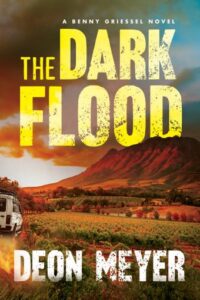
Deon Meyer, The Dark Flood
(Atlantic Monthly Press)
“… a compelling, rip-roaring crime story peppered with dry South African humour … Meyer’s depiction of Stellenbosch is spot on, from the persistent traffic and parking issues to income disparities … includes a wonderfully vivid depiction of the Stellenbosch setting and the multiple references to its neighbourhoods and restaurants warmed this reader’s Stellenbosch heart … It’s clear why his books have been translated into 127 languages. He knows how to craft an engaging and clever plot through multiple threads without losing the attention of his audience. The Dark Flood grips, entertains and satisfies. It comes recommended, even if you’re not a Stellenbosch local.”
–Sonja Van Der Westhuizen (Crime Fiction Lover)
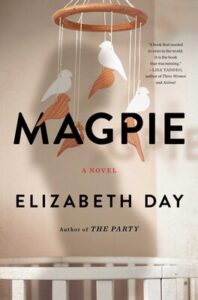
Elizabeth Day, Magpie
(Simon and Schuster)
“Early in Magpie, a twist comes that made me gasp out loud. And it’s the kind of twist that makes you re-evaluate everything you’ve read before … We watch Marisa, Jake and Kate make choices that strain credibility or at least consistency of character. But realism isn’t the point. It’s not about how things are but how they feel — and the deeper truths that can be mined within that feeling … The near-constant fever pitch of the narrative matches how it feels to be suffering through pregnancy anxiety, fears of romantic betrayal, in-law strife, body horror. And the spiraling energy at the center of the novel captures the way fertility struggles can serve as a tripwire, upturning everything else in one’s life
–Megan Abbott (New York Times Book Review)

Mick Herron, Bad Actors
(Soho)
“The newest Slough House spy novel by Mick Herron, has at last arrived … We can dispense with the plot fairly swiftly, because plot isn’t — at least for me — the book’s chief attraction … What spurs me to keep reading each new installment is Herron’s absurdist voice, which could devolve into cheap cynicism but never does. That’s why the Slough House denizens, from Jackson Lamb to Roddy Ho to newcomer Ashley Kahn, maintain pathos in the face of parody.”
–Sarah Weinman (New York Times Book Review)
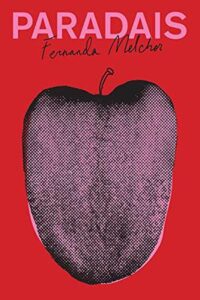
Fernanda Melchor (transl. Sophie Hughes), Paradais
(New Directions)
“With a nimble command of the novel’s technical resources and an uncanny grasp of the irrational forces at work in society, the [Paradais and Hurricane Season] navigate a reality riven by violence, race, class, and sex. And they establish Melchor, who was born in 1982, as the latest of Faulkner’s Latin American inheritors, and among the most formidable …”
–Juan Gabriel Vasquez (New Yorker)
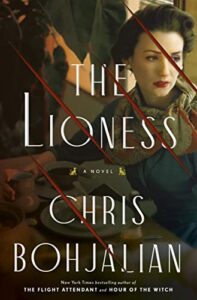
Chris Bohjalian, The Lioness
(Doubleday)
“In his writing, Bohjalian is anything but a kitten. Lesser writers could not tackle 10 narrators, the complexities of racism in America, African politics, violence both foreign and domestic and make the pieces fit seamlessly together. But Bohjalian has shown time and again that with him, you don’t know what you’re going to get, but you know that the getting is good … With The Lioness, the getting is violently good. Pulled in by the promise of thrills or the guarantee of glamour, readers will stay for the game of survivor(s), and finish the book as satisfied as a fat cat in the Serengeti.”
–Karen Tanabe (Washington Post)
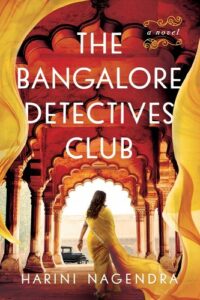
Harini Nagendra, The Bangalore Detective’s Club
(Pegasus)
“Effervescent … Kaveri and Ramu form a true partnership over the course of the novel, one where they can play off strengths and compensate for each other’s weaknesses. Even though I did see the main twist coming, the danger level felt palpable and authentic. This is a treat for historical mystery lovers looking for a new series to savor (or devour).”
–Sarah Weinman (New York Times)
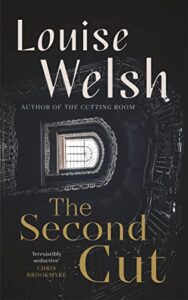
Louise Welsh, The Second Cut
(Canongate)
“The tendency of reality, in its roughest form, to interrupt the most painstakingly choreographed of our lives’ arrangements is another constant at the heart of this novel … ‘We half walked, half waltzed along’. This wouldn’t be a bad description of the way the novel’s plot unfolds, swirling off at seeming tangents, always finely, if precariously, poised. Rilke’s narrative voice, with its constant flow of dry and quirky observation, keeps the reader enthralled. And so does the plot … The Second Cut is exhilarating in its wit, its sophistication and its freewheeling energy, but most of all in being so bracingly down-to-earth.”
–Michael Kerrigan (Times Literary Supplement UK)
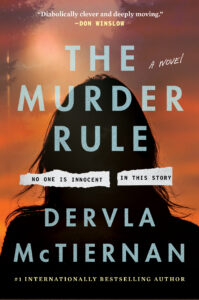
Dervla McTiernan, The Murder Rule
(William Morrow)
“The Murder Rule is a masterclass in manipulation from an author who knows just how to pull the strings without revealing her (amply skilled) hand. In Hannah, she has crafted a nuanced, and ultimately sympathetic, character who does wrong in the pursuit of (perceived) right—but who also rights wrongs when opportunities allow. This dynamism coupled with abundant plot twists, ethical ambiguities, and legal loopholes all conspire to make a cunning and compulsively readable story in which justice is in the eye of the beholder. But of one thing you can be certain: Dervla McTiernan is a name to know, and to remember.”
–John Valeri (Criminal Element)
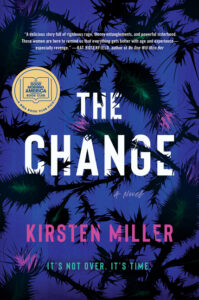
Kristen Miller, The Change
(William Morrow)
“A pointed, punchy, and potent thriller for adults … The Change is wry and clever, serious and exacting, and masterfully suspenseful in its conveyance of a deeply profound and feminist message.”
–Julia Maxwell (Booklist)
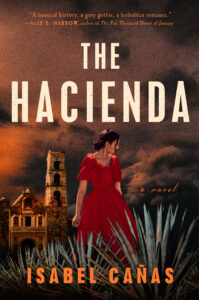
Isabel Cañas, The Hacienda
(Berkley)
“A dark gothic novel … The pages of The Hacienda are drenched in these secrets, but also in the real-life horrors of colonialism, patriarchy and the complicated and harmful casta system that reverberates through the generations … Cañas’s writing is immersive, and she skillfully builds a robust sense of tension and terror that encompasses the evil that dwells in the house and the human actions from which it grows. The Hacienda is a blend of horror and mystery with a gothic heart, complete with a heroine on the brink of madness, running into the night in fear. This chilling read exposes the rotting soul of colonialism and manages to be wildly entertaining while doing so.”
–Suzanne Krohn (Shelf Awareness)


















